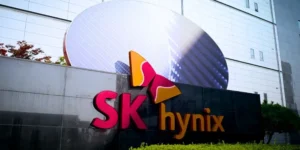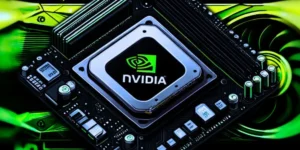Artificial intelligence (AI) has become integral to our lives, driving advancements in various fields. To power the next generation of AI applications, Google has developed its custom-designed chip called Google Tensor. This cutting-edge AI processor is designed to deliver exceptional performance, advanced machine-learning capabilities, and efficient power usage. In this article, we will explore the remarkable features, advancements, and impact of Google Tensor on AI computing.
Introducing Google Tensor
Google Tensor is a custom-designed AI processor developed by Google. It is purpose-built to handle the computational demands of AI workloads, providing high performance and energy efficiency. The chip is designed to optimize the execution of machine learning models, making it an ideal choice for training and inference tasks. Google Tensor combines hardware and software innovations, leveraging Google’s expertise in AI research and development. It represents a significant milestone in AI computing, empowering users with enhanced AI experiences.
Key Features and Advancements of Google Tensor
Google Tensor boasts a wide range of impressive features and advancements that distinguish it in the field of AI computing. Let’s explore its notable characteristics.
AI-Optimized Architecture
Google Tensor features an AI-optimized architecture designed to accelerate machine learning tasks. It incorporates a multitude of AI cores specifically engineered to handle complex neural network computations efficiently. This architecture enhances AI workloads’ performance and energy efficiency, enabling faster and more efficient processing.
Tensor Processing Units (TPUs)
The Tensor Processing Units (TPUs) within Google Tensor are dedicated hardware accelerators for AI computations. These TPUs are designed to perform high-traffic matrix operations, a fundamental operation in deep learning algorithms. Their specialized architecture gives TPUs exceptional performance and energy efficiency, making them well-suited for AI tasks.
Advanced Neural Network Capabilities
Google Tensor supports advanced neural network capabilities, enabling efficient training and inference of deep learning models. It leverages techniques like quantization and pruning to optimize the size and efficiency of neural networks. This allows for faster model deployment and execution on devices powered by Google Tensor.
On-Device Machine Learning
One of the key advancements of Google Tensor is its focus on on-device machine learning. Google Tensor minimizes reliance on cloud-based processing by performing AI computations directly on the device. This enables faster and more secure AI experiences, even without an internet connection, while preserving user privacy.
Software Integration
Google Tensor is designed to seamlessly integrate with Google’s software ecosystem, including popular AI frameworks like TensorFlow. The chip’s software integration ensures compatibility and maximizes performance when running AI workloads. Developers can leverage Google’s software tools and APIs to build AI-powered applications that take full advantage of Google Tensor’s capabilities.
Advancements and Benefits of Google Tensor
Google Tensor brings significant advancements and benefits to the field of AI computing. Let’s explore how these advancements impact various aspects of AI-driven applications.
Enhanced Performance
With its AI-optimized architecture and specialized TPUs, Google Tensor delivers exceptional performance for AI computations. It accelerates the training and inference of deep learning models, enabling faster insights and predictions. The high-performance capabilities of Google Tensor empower researchers, developers, and organizations to tackle complex AI tasks with greater efficiency.
Energy Efficiency
Google Tensor emphasizes energy efficiency, enabling more computations per watt of power consumed. Its dedicated hardware accelerators, like the TPUs, optimize power usage for AI workloads. This energy efficiency is crucial for mobile devices and edge computing, where power constraints are more pronounced. Google Tensor enables longer battery life and sustainable AI experiences.
On-Device AI Capabilities
Google Tensor enables AI experiences directly on user devices by focusing on on-device machine learning. This reduces reliance on cloud-based processing and enables real-time AI applications. On-device AI also enhances privacy, as sensitive data doesn’t need to be transmitted to external servers. Google Tensor empowers users with personalized and secure AI experiences.
Accelerated Model Deployment
The advanced neural network capabilities of Google Tensor, such as quantization and pruning, enable more efficient model deployment. Models can be optimized for reduced size and faster execution on devices powered by Google Tensor. This acceleration streamlines the deployment of AI solutions and allows for faster updates and improvements to AI models.
Seamless Integration and Development
Google Tensor’s seamless integration with Google’s software ecosystem simplifies AI development and deployment. Developers can leverage familiar tools, frameworks, and APIs to build AI-powered applications. The software integration streamlines the development process, reduces time to market, and enables the creation of innovative AI experiences.
Conclusion
Google Tensor represents a significant breakthrough in AI computing. With its AI-optimized architecture, dedicated TPUs, on-device capabilities, and software integration, Google Tensor revolutionizes how AI is powered and experienced. It delivers exceptional performance, energy efficiency, and accelerated model deployment, enabling users to unlock the full potential of AI applications. Google’s dedication to advancing AI technologies continues to drive progress and shape the future of AI computing, creating a world where AI is seamlessly integrated into our daily lives.











